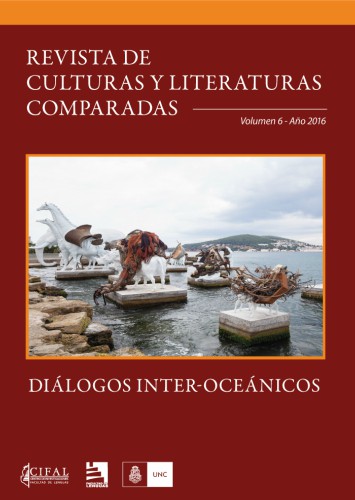El retorno al hogar: La hibridez cultural de Pilar en Dreaming in Cuban
Palabras clave:
hibridez intercultural, identidad, sueños, espiritualidadResumen
El presente trabajo explora la aceptación de la hibridez intercultural a través del retorno a la patria como paso fundamental para la reconstrucción de la identidad en el personaje de Pilar en Soñar en cubano (1992) de Cristina García. Desde una perspectiva poscolonial, se analizan y discuten las diferentes formas a través de las cuales Pilar intenta regresar a Cuba luego de casi una vida de exilio involuntario. De esta manera, se abordan los sueños, la espiritualidad y el regreso físico al espacio geográfico de la patria como intentos de reconectarse a la esencia de su identidad fragmentada que, en el caso de Pilar, le fue arrebatada a los dos años por la fuerza disruptiva del exilio de su familia. Se concluye, además, que estas diversas formas de reconectarse a sus raíces resaltan su hibridez intercultural como un elemento completamente liberador y potenciador de su identidad.
Descargas
Referencias
Ashcroft Bill, Griffiths Gareth & Tiffin Helen. The Empire Writes Back. New York: Routledge, 1989.
Augé, Mark. 1992. The Non-places: Introduction to an Anthropology of Supermodernity. London and New York: Verso, 1995.
Bhabha, Homi. Nation and Narration. New York: Routledge, 1990.
---. The Location of Culture. New York: Routledge, 1994.
Carroll, Lewis. 1895. Alice’s Adventures in Wonderland. London: Running Press, 2004. Castillo, Ana. Massacre of the Dreamers: Essays on Xicanisma. New York: Plume, 2005.
García Canclini, Néstor. Culturas híbridas: Estrategias para entrar y salir de la modernidad. Buenos Aires: Paidós, 2001.
García, Cristina. Dreaming in Cuban. New York: Ballantine Books, 1992.
Esplin, Emron. “Cuban Types, Distorted Memories and a Return to Cuba”. Confluencia, 20/2 (2005):83-97.
Foucault, Michel. “Of Other Spaces: Utopias and Heterotopias”. 1967. Rethinking Architecture: A Reader in Cultural Theory. Edited by Neil Leach, Ed. NYC: Routledge, 1997, 330-336.
Itzigsohn, José & Dore-Cabral, Carlos. “Competing identities? Race, Ethnicity and Panethnicity among Dominicans in the United States”. Sociological Forum, 15 (2), (2000): 225-247. Retrieved from http://www.jstor.org/stable/684815
Leonard, Suzanne. “Dreaming as Cultural Work in Donald Duk and Dreaming in Cuban”. MELUS, 29/2 (2004):181-203.
Machado Sáez, Elena. “The Global Baggage of Nostalgia in Cristina García’s Dreaming in Cuban”. MELUS, 30/4 (2005):129-147.
Mato. Daniel. “On the Making of Transnational Identities in the Age of Globalization: The US Latina/o- ‘Latin’ American case”. Identities: Race, Class, Gender and Nationality. L. Martín Alcoff & E. Mendieta, Eds. Oxford, England: Blackwell Publishing, 2003, 281-294.
Payant, Katherine. “From Alienation to Reconciliation in the Novels of Cristina García”. MELUS, 26/3 (2001): 163-182.
Ricœur, Paul. La memoria, la historia, el olvido. Buenos Aires: Fondo de Cultura Económica, 2004.
Tatum, Beverly. “The Complexity of Identity: Who am I?” Readings for Diversity and Social Justice. Maurianne Adams Ed. New York: Routledge, 2001, 18-28.
Tyson, Lois. Critical Theory Today: A User-friendly Guide. New York, NY: Routledge, 1999.
Publicado
Número
Sección
Licencia
Aquellos/as autores/as que tengan publicaciones con esta revista, aceptan los términos siguientes:
a) Los/as autores/as conservarán sus derechos de autor y garantizarán a la revista el derecho de primera publicación de su obra, el cual estará simultáneamente sujeto a la Licencia de reconocimiento de Creative Commons.
b) La cesión de derechos no exclusivos implica que la publicación de los artículos en la presente revista no quita la posibilidad o el derecho al autor/a de publicar su obra de manera posterior en otras revistas u órganos editoriales y la autorización por parte de los/as autores/as para que el trabajo sea depositado en los repositorios institucionales, tales como el Portal de Revistas de la Universidad Nacional de Córdoba.



